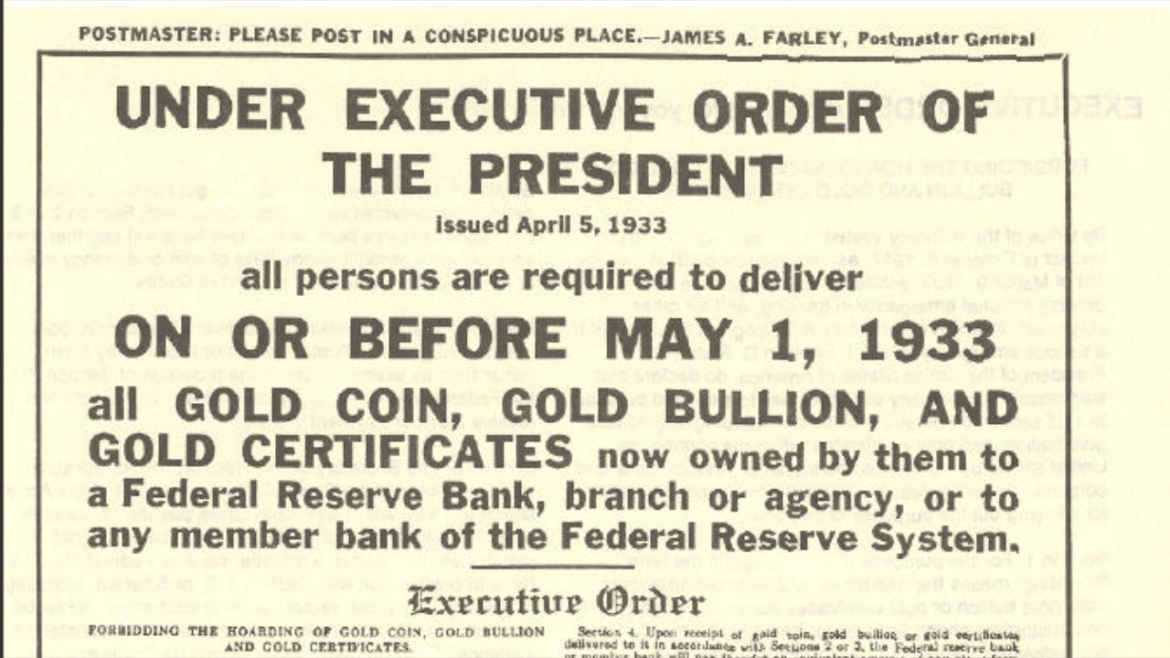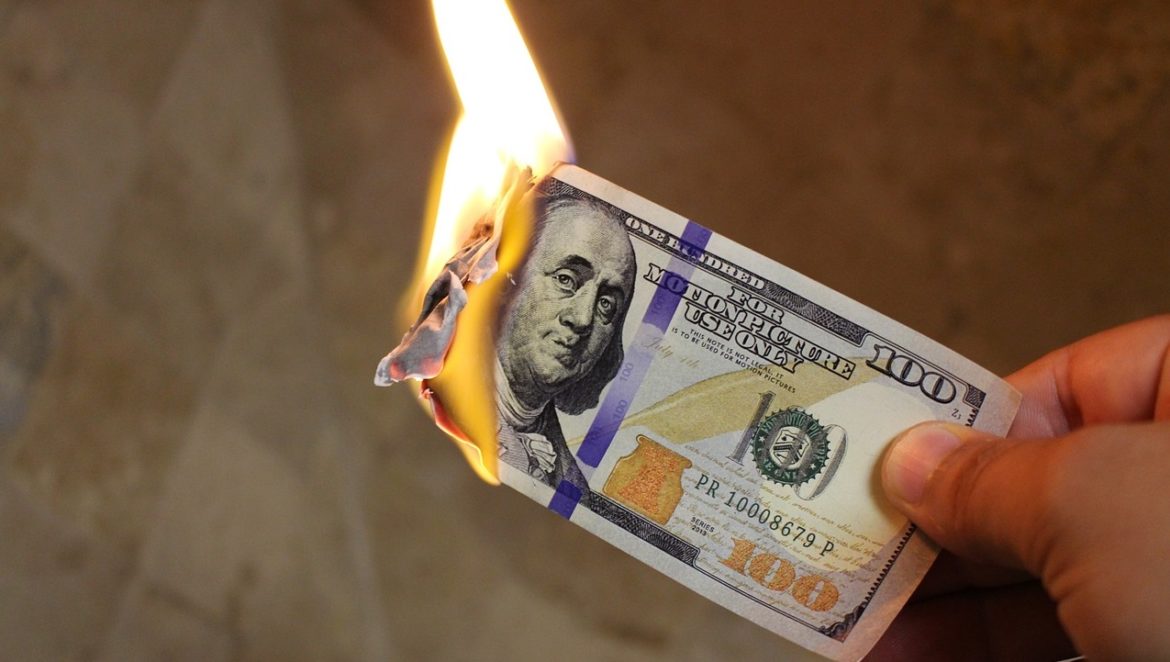Gold has all the potential to go unprecedentedly high. But silver will be gold on
Site:
Precious metals news
Scrape away the complexity and every economic crisis and crash boils down to the precarious asymmetry between collateral and the debt secured by that collateral collapsing.
Gold extended a surge to a 13-month high after US data showed the jobs market loosening more than expected, diminishing bets the Federal Reserve will hike interest rates again.
We may not be able to prevent the crisis, but we can see it coming and prepare accordingly to preserve wealth. Step one is to get gold. That will see you through the storm.
We’re in a turbulent economic environment right now, and the headwinds are piling together, putting up an ominous cloud on the financial horizon. Billionaire Leon Cooperman, the CEO of Omega Advisors, has noted the coming storm, and sees the commercial real estate market as the eye of the developing hurricane. In Cooperman’s view, several factors are about to hit hard...
 Morgan Stanley Is Forecasting ‘Worse Than in the Great Financial Crisis’ for Commercial Real Estate
Morgan Stanley Is Forecasting ‘Worse Than in the Great Financial Crisis’ for Commercial Real EstateApr 5, 2023 - 05:57:37 PDT
Over $1.4 trillion of CRE mortgages have to be refinanced in the next two years, and a huge amount is owed to regional banks, Morgan Stanley says.
Apr 5, 2023 - 05:54:13 PDT
My friend Phill Hall asked me about the state of the US housing market yesterday. My answer? “Chaos.” Why chaos? Here is why: 23 consecutive months of NEGATIVE real wage growth, declining availability of homes for sale, still expensive home prices following the Covid spending surge, and rising mortgage rates as The Fed fights inflation.
Apr 5, 2023 - 05:53:04 PDT
Thanks to Yellen’s catestrophic Too-Low-For-Too-Long (TLFTL) and insane Federal spending, we are seeing the aftermath of The Fed trying to fight inflation. A fire sale of failed bank assets!!
UBS Group AG pulled off one of the biggest bank deals ever in a matter of days. But the groundwork had been laid for years.
 Toronto-Dominion Becomes Biggest Bank Short With $3.7 Billion on the Line
Toronto-Dominion Becomes Biggest Bank Short With $3.7 Billion on the LineApr 5, 2023 - 05:47:56 PDT
Turns out, the biggest short in the banking industry anywhere in the world isn’t in Switzerland or Silicon Valley, but rather, in the relatively tame financial center of Canada.
There’s a rally in the US bond market and there’s a rally in the US stock market. Pimco’s Erin Browne wants investors to understand only one of them is likely to continue.
US Treasuries erased losses and rallied as a weaker-than-expected jobs report from ADP Research Institute signaled narrowing room for the Federal Reserve to accelerate monetary tightening.
The US yield curve is set to invert even further, barring a rapid drop in inflation, according to Greg Peters, co-chief investment officer at PGIM Fixed Income.
 Cleveland Fed’s Mester Sees Rates Above 5% Amid ‘Too High and Too Stubborn’ Inflation
Cleveland Fed’s Mester Sees Rates Above 5% Amid ‘Too High and Too Stubborn’ InflationApr 5, 2023 - 05:40:11 PDT
Fed officials continue to talk up the need for higher rates as inflation remains elevated and the most acute pressures from March's bank crisis show signs of easing.
Following yesterday's ugly JOLTS data, and the employment weakness under the surface in the ISM Manufacturing report, expectations were still for just a small slowdown in job additions in March (+210k exp vs +242k in Feb). However, as JOLTS and ISM hinted at, things are changing fast and ADP printed just +145k (a big miss)
 Global Markets Stumbled on Wednesday as Signs That the Economic Outlook Is Weakening
Global Markets Stumbled on Wednesday as Signs That the Economic Outlook Is WeakeningApr 5, 2023 - 05:34:00 PDT
World stocks stumbled on Wednesday as signs that the economic outlook is weakening spurred some caution, while the dollar edged back from two-month lows.
Bills introduced in the Texas House and Senate would create a state-issued, gold-backed digital currency. Enactment of this legislation would create an option for people to transact business in sound money, set the stage to undermine the Federal Reserve’s monopoly on money and create a viable alternative to a central bank digital currency (CBDC).
Yesterday (April 5) marked the anniversary 0f the signing of Executive Order 6102 by President Franklin D. Roosevelt. It was touted as a measure to stop gold hoarding, but it was in reality, an attempt to remove gold from public hands.Many people refer to EO-6102 as a gold confiscation order. But confiscation is probably not the best word for what happened in practice.
The February Trade Deficit increased for the third month in a row, rising by $1.9 billion. Net Goods came in at -$92.9B with Net Services at $22.4B to reach a total of -$70.5B.
 BRICS Nations Developing "New Currency" as Quest for Global De-Dollarization Accelerates
BRICS Nations Developing "New Currency" as Quest for Global De-Dollarization AcceleratesApril 5, 2023
China and Brazil recently finalized a trade deal in their own currencies completely bypassing the dollar, but that's not the only bad news for the world's reserve currency.Last week, a Russian official announced that the BRICS nations are working to develop a "new currency," yet another sign that dollar dominance is waning.
Most people in the mainstream seem to think that the recent bank bailout plugged the crack in the dam and stabilized the banking sector. But one big bank boss disagrees. In an annual letter, JP Morgan Chase CEO Jamie Dimon said that the banking crisis isn't over and that we will feel its repercussions for years to come.







